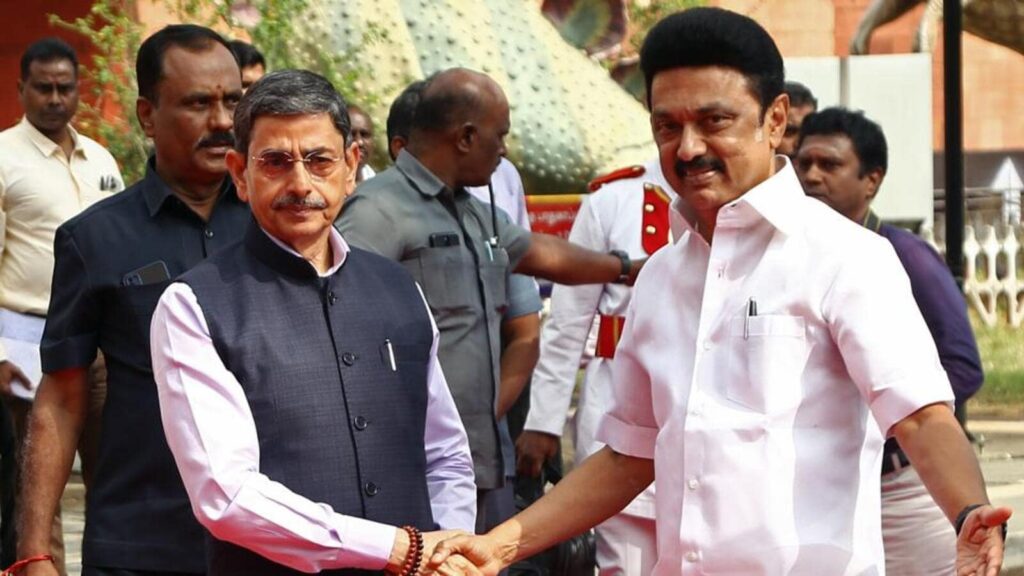The high drama surrounding Tamil Nadu’s governor RN Ravi’s unprecedented move to dismiss a sitting minister, only to hold his earlier decision in abeyance hours later, sends the wrong signal and further stresses India’s federal framework. It should have been avoided.
Raj Bhavan and the elected government in Tamil Nadu have been locked in an intensifying tussle over embattled minister V Senthil Balaji, who faces corruption charges and was arrested by the Enforcement Directorate earlier this month. When chief minister (CM) MK Stalin wrote to the governor to distribute the portfolios allocated by Mr Balaji to other members, Mr Ravi acquiesced but not before voicing his disapproval of the incarcerated minister continuing in the cabinet. Then, on Thursday evening, Mr Ravi unilaterally dismissed Mr Balaji from the council of ministers, alleging the leader was abusing his position and obstructing justice. As a political firestorm raged, Mr Ravi wrote a second letter to Mr Stalin late in the evening after apparent intervention from Union home minister Amit Shah, saying Mr Shah had advised him to seek the opinion of the attorney general. “Accordingly, I am approaching the attorney general for his opinion. Meanwhile, the order of dismissal of minister…Balaji may be kept in abeyance,” he wrote.
This newspaper believes that investigations into powerful figures need to be thorough, impartial and swift. The charges against Mr Balaji are serious and if he is indeed obstructing justice, it needs to be probed to the fullest extent of the law. Morality and probity in public office are preferable qualities, but these cannot be sought to be achieved by undermining the powers of the elected government as enshrined in the Constitution. Or by governors taking unto themselves more powers than envisaged by the Constitution.
The unfortunate aspect of Mr Ravi’s actions is that they cement the perception that governors in states ruled by parties opposed to the Bharatiya Janata Party (BJP) are acting in ways that infringe on the domain of the state government. Governors appear to have been given the message that they need to keep pushing the envelope in ratcheting up confrontation with the ruling political party. This impression is solidified by the fact that while a number of Opposition-ruled states are currently roiled by a standoff between Raj Bhavan and the state government – Kerala, Telangana, West Bengal and Punjab are only the most extreme examples of this phenomenon – there is not a single instance of any similar controversy in a state governed by the BJP.
In state after state, such a face-off is detrimental for India’s fraying federal fabric, which is already under stress due to fiscal outlays and devolution. Instead, governors and state governments should focus on mutual cooperation and discharging their duties as spelt out in India’s founding document. The Constitution’s framers were clear that they were establishing a framework where governors had limited (actually very limited) discretion and role. Speaking in the Constituent Assembly in June 1949, BR Ambedkar said, “The governor under the Constitution has no functions which he can discharge by himself: No functions at all. While he has no functions, he has certain duties to perform, and I think the House will do well to bear in mind this distinction.”
The governors should too.

